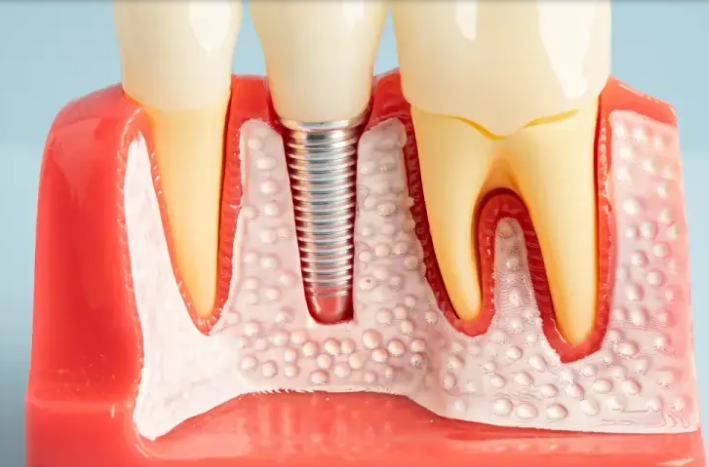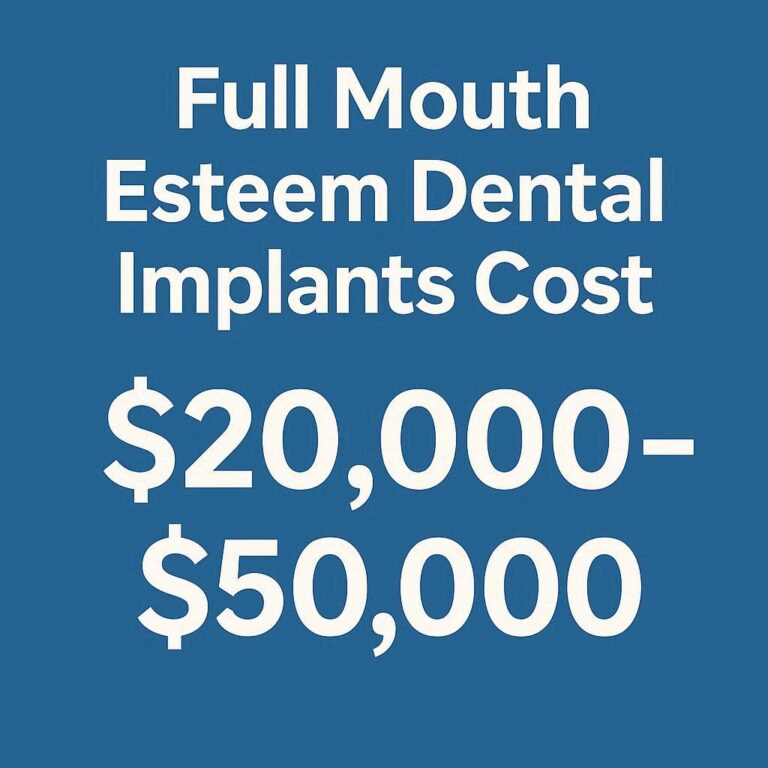Affordable Dental Implants in Denver: A Comprehensive Guide to Restoring Your Smile
A confident smile is one of the most valuable assets a person can have. However, missing teeth can lead to self-consciousness, difficulty eating, and even bone loss in the jaw. Fortunately, dental implants offer a permanent and natural-looking solution.
If you’re in Denver and looking for an affordable way to restore your smile, this guide will walk you through everything you need to know—from the basics of dental implants to cost-saving tips and finding the best providers in the area.

2. What Are Dental Implants?
Dental implants are artificial tooth roots made of biocompatible titanium that are surgically placed into the jawbone. Once integrated with the bone, they provide a sturdy foundation for replacement teeth, such as crowns, bridges, or dentures.
Key Components of a Dental Implant:
-
Implant Post – The titanium screw that fuses with the jawbone.
-
Abutment – The connector that holds the prosthetic tooth.
-
Crown/Bridge/Denture – The visible part that mimics natural teeth.
Unlike dentures, implants are permanent and prevent bone deterioration, making them the gold standard in tooth replacement.
3. Benefits of Dental Implants
✅ Natural Look & Feel – Implants function like real teeth.
✅ Prevent Bone Loss – Stimulate the jawbone, preventing deterioration.
✅ Long-Lasting – Can last a lifetime with proper care.
✅ Improved Speech & Eating – No slipping, unlike dentures.
✅ No Damage to Adjacent Teeth – Unlike bridges, they don’t require grinding down healthy teeth.
4. Types of Dental Implants
| Type | Best For | Pros | Cons |
|---|---|---|---|
| Endosteal Implants | Patients with sufficient jawbone | Most common, highly durable | Requires healthy bone density |
| Subperiosteal Implants | Patients with bone loss | No need for bone grafting | Less stable than endosteal |
| All-on-4 Implants | Full-arch restoration | Faster healing, cost-effective | Not suitable for everyone |
| Mini Implants | Stabilizing dentures | Less invasive, affordable | Not as strong as traditional implants |
5. Are Dental Implants Right for You?
Good Candidates:
✔ Healthy gums and sufficient jawbone.
✔ Non-smokers or willing to quit.
✔ Good overall health (no uncontrolled diabetes or immune disorders).
Possible Alternatives If Not Eligible:
-
Bone Grafting – For patients with bone loss.
-
Sinus Lift – For upper jaw implants.
-
Dentures or Bridges – Temporary solutions.
6. The Dental Implant Procedure: Step-by-Step
-
Initial Consultation – X-rays, 3D scans, and treatment planning.
-
Tooth Extraction (if needed) – Removal of damaged teeth.
-
Bone Grafting (if required) – Strengthening the jawbone.
-
Implant Placement – Surgical insertion of the titanium post.
-
Osseointegration – Healing period (3-6 months).
-
Abutment Placement – Connecting the prosthetic.
-
Crown Attachment – Final tooth restoration.
7. Cost of Dental Implants in Denver
The average cost of a single dental implant in Denver ranges from $3,000 to $6,000, depending on:
-
Number of implants needed
-
Bone grafting requirements
-
Type of restoration (crown, bridge, denture)
-
Dentist’s experience
Ways to Save on Dental Implants:
-
Dental Schools – Lower-cost services from supervised students.
-
Payment Plans – Many clinics offer financing.
-
Dental Discount Plans – Reduced fees for members.
-
Insurance Coverage – Some plans cover part of the cost.
8. How to Find Affordable Dental Implants in Denver
Research Multiple Clinics – Compare prices and reviews.
Ask About Promotions – Seasonal discounts or package deals.
Consider Dental Tourism – Some travel abroad for cheaper options.
Check Insurance & Financing – Flexible payment options help.
9. Dental Implants vs. Dentures and Bridges
| Factor | Dental Implants | Dentures | Bridges |
|---|---|---|---|
| Durability | 20+ years | 5-10 years | 10-15 years |
| Bone Health | Prevents bone loss | Accelerates bone loss | No impact on bone |
| Maintenance | Brush like natural teeth | Remove & clean daily | Special flossing needed |
| Cost | Higher upfront cost | Cheaper initially | Moderate cost |
10. Common Myths About Dental Implants
❌ “Implants are too expensive.” – Long-term value outweighs cost.
❌ “The procedure is painful.” – Local anesthesia ensures comfort.
❌ “They look fake.” – Modern implants are indistinguishable from real teeth.
❌ “Only older people need them.” – Anyone with missing teeth can benefit.
11. Choosing the Best Dental Implant Specialist in Denver
-
Check Credentials – Look for board-certified prosthodontists or oral surgeons.
-
Read Reviews – Patient testimonials matter.
-
Ask About Experience – How many implants have they placed?
-
Consultation Comfort – Do they explain options clearly?
12. Post-Implant Care and Maintenance
-
Oral Hygiene – Brush, floss, and use antibacterial mouthwash.
-
Avoid Hard Foods – Protect implants from excessive force.
-
Regular Check-ups – Ensure long-term success.
13. Potential Risks and Complications
-
Infection – Rare but possible.
-
Nerve Damage – If placed incorrectly.
-
Implant Failure – Due to poor osseointegration.
Choosing an experienced dentist minimizes these risks.
14. Success Rates and Longevity of Dental Implants
-
Success Rate: 95-98%
-
Lifespan: 20+ years (often a lifetime with care)
15. Financing and Insurance Options
-
CareCredit – Medical financing with low interest.
-
In-House Payment Plans – Monthly installments.
-
Insurance Coverage – Some plans cover 50% of the cost.
16. Conclusion
Dental implants in Denver offer a permanent, natural-looking solution for missing teeth. While the upfront cost may seem high, their durability and health benefits make them a worthwhile investment. By researching affordable options, financing, and choosing a skilled dentist, you can restore your smile without breaking the bank.
17. FAQs
Q: How long do dental implants last?
A: With proper care, they can last a lifetime.
Q: Does insurance cover dental implants?
A: Some plans partially cover them; check with your provider.
Q: Is the implant procedure painful?
A: No, local anesthesia ensures a pain-free experience.
Q: Can smokers get dental implants?
A: Smoking increases failure risk; quitting improves success rates.
Q: How soon can I eat normally after implants?
A: Soft foods initially; normal eating resumes after full healing.


